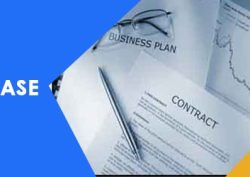Small business owners want to find ways to keep their businesses thriving. While there are many factors that determine the growth of your business, having control over the finances is the biggest task. A majority of businesses fail as a result of a lack of proper financial management. Budgeting, saving, and managing the cash flow are crucial to keeping the business running.
Cash Flow in a Business
Cash flow is the net amount of money that gets in and out of our business. The success of your business is dependent on the ability to create positive cash flow through business operations. This means that the income ought to be bigger than the expenses.
Managing Cash Flow in Your Business
To ensure that you have control over the operations of your business, there is a need to focus on the cash flow. The first step towards achieving control is creating a budget. Budgeting helps a business owner to determine the monthly income and expenses. The budget also entails how much a business will earn or spend in the future.
Another important aspect that helps you manage your cash flow is building savings. It might be tempting to utilize all the income to pay for expenses or grow the business. However, it is advisable to put aside a little bit of the business income to build savings. The savings can be useful in the future when you require paying for some expenses or even investing in an opportunity.
Managing cash flow with Hire Purchase
Leasing and hire purchases are considered one of the best ways to manage cash flow in a business. Leasing involves hiring assets or equipment and making periodic payments to the owner. With leasing, one requires returning the asset to the owner at the end of the agreement.
Hire purchase is almost similar to leasing. When a business requires assets, it can pay a deposit to the seller and make periodic payments. However, unlike leasing, you will retain the asset at the end of the agreement.
While hire purchase can seem expensive for a business when purchasing assets, it has plenty of benefits. The biggest benefit is that it allows you to have control over cash flow. In the case of a cash purchase, you will need a large amount of money to pay for an asset upfront. Paying a lumpsum amount of cash will certainly hurt your cash flow. Hire purchase on the other hand will help you spread the cost of the items over a specific duration. This not only allows for budgeting, but it also means that you can acquire assets and have cash for other expenses.
Learn more about hire purchases on our blog. Follow Kenya Credit Traders.




